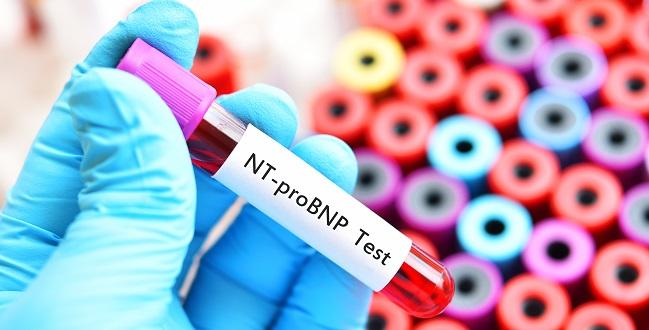NT-proBNP Level Helps ID Patients Who Won't Benefit From TAVR
For patients with normal or very high levels, other possible causes of symptoms should be investigated, a single-center series hints.

Baseline N-terminal pro-brain natriuretic peptide (NT-proBNP) level appears to provide insights into the likelihood of symptomatic improvement after TAVR, a single-center study shows.
Normal values below 800 ng/L and very high levels above 10,000 ng/L were both associated poor symptom relief in the year after the procedure, defined as no improvement in NYHA functional class or death, researchers report.
That information proves useful both for patient selection and for discussions with TAVR candidates, senior author Simon Redwood, MBBS, MD (King’s College London, England), told TCTMD.
The findings were published recently online in the Journal of the American Heart Association, with lead author Christopher Allen, MBChB(Hons) (King’s College London).
Honing Patient Selection
Despite the established benefits of TAVR in patients with symptomatic severe aortic stenosis, gains in symptom status are not universal—up to 30% of patients will either have minimal symptomatic improvements or die within 1 year, according to the investigators. That underscores the need to refine patient selection to avoid procedures in those who are unlikely to benefit.
Blood levels of BNP and NT-proBNP have been shown to be associated with the severity of aortic stenosis and symptom onset, but prior studies exploring the relationship between these markers and TAVR outcomes have provided mixed results.
The current study included 144 patients (mean age 83 years; 50% women) who underwent TAVR at a single high-volume center and survived for more than a month after the procedure. At baseline, mean NT-proBNP was 5,305 ng/L.
In the overall cohort, mean NYHA functional class improved from 2.6 at baseline to 1.8 at 1 year. However, 32% of patients either had no symptomatic improvement or died.
The researchers found a nonlinear, U-shaped relationship between log-transformed NT-proBNP and change in functional status, with levels below 800 ng/L or higher than 10,000 ng/L “predicting futility of symptom relief with a high degree of diagnostic accuracy.” Sensitivity was 88%, specificity 83%, positive predictive value 72%, and negative predicative value 93%.
We find BNP very useful and use it routinely in our . . . heart team discussions. Simon Redwood
Redwood said this aligns well with what his group is already doing in clinical practice when evaluating TAVR candidates. If NT-proBNP levels are normal or very high, they’ll look for other causes for the symptoms beyond aortic stenosis before recommending the procedure.
As the group explains in the paper, low values suggest an alternate cause like chronic lung disease, which was present in 52% of patients with NT-proBNP below 800 ng/L in this study. On the flip side, a very high level might be indicative of “an irrevocably diseased left ventricle.”
The investigators say that the “findings in this relatively small, single-center study should be considered hypothesis-generating and interpreted with attendant caution.”
Redwood noted, too, that much ongoing work is being done to identify more-accurate markers of symptomatic recovery besides NYHA class and to see whether there are other biomarkers that might help identify patients in whom TAVR would be futile.
Todd Neale is the Associate News Editor for TCTMD and a Senior Medical Journalist. He got his start in journalism at …
Read Full BioSources
Allen CJ, Joseph J, Patterson T, et al. Baseline NT-proBNP accurately predicts symptom response to transcatheter aortic valve implantation. J Am Heart Assoc. 2020;9:e017574.
Disclosures
- Redwood reports having received speaker fees from Edwards Lifesciences and having served as an international advisory board member for Medtronic.


Comments